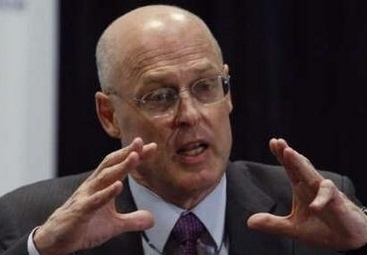Paulson rejects government bailouts
Updated: 2008-02-29 09:03
WASHINGTON -- Treasury Secretary Henry Paulson said Thursday that many proposals being put forward to deal with the housing slump would do more harm than good.
While he still believes that the housing problem remains the biggest downside risk to the economy, Paulson said the issue needed to be put in perspective. He said 93 percent of all mortgages are being paid on time and that less than 2 percent are in foreclosure.
|
|
"So while some in Washington are proposing big interventions, most of the proposals I've seen would do more harm than good," the secretary said in remarks prepared for delivery Thursday night before the Economic Club of Chicago.
"I'm not interested in bailing out investors, lenders and speculators," he said. "I'm focused on solutions targeted at struggling homeowners who want to keep their homes."
Paulson's comments represented the strongest administration objection lodged so far to a variety of proposals being pushed by Democrats in Congress to do more to help. Paulson said that dealing with the mortgage problems needs to be a shared responsibility.
Both Senate Banking Committee Chairman Christopher Dodd, D-Conn., and House Financial Services Committee Chairman Barney Frank, D-Mass., are leading congressional efforts to bolster the government's response to unfolding mortgage crisis which by some estimates could result in 2 million foreclosures this year alone.
Among the items being considered are proposals to have the government buy $15 billion in troubled mortgages, change bankruptcy laws to allow judges to modify home mortgage loans to more favorable terms and provide assistance to state and local governments to help buy foreclosed properties.
At the White House, President Bush told reporters Thursday that he was concerned that some of the proposals would drive up the cost of mortgages which would penalize prospective home buyers while doing more to "bail out lenders and speculators than to help American families keep their homes."
In his comments, Paulson said that homeowners who could afford to make their monthly mortgage payments should honor their obligations even if their loans were currently "underwater," meaning the mortgage at the moment is higher than the value of the home because the steep housing slump has pushed home prices down.
Paulson said the administration was focused on a two-pronged strategy that included boosting the economy with the $168 billion economic stimulus package passed by Congress earlier this month and encouraging the mortgage industry to help homeowners avoid losing their homes through mortgage defaults.
Democrats contend that the voluntary market-based program is not helping enough people and is also not doing enough to stabilize credit markets, which were hit last August with a severe credit squeeze related to mounting losses on subprime mortgages, loans made to people with weak credit histories.
Paulson said that the administration is closely monitoring industry efforts to freeze subprime mortgages that are scheduled to reset to higher rates and to move struggling borrowers into more affordable loans. He noted that the Securities and Exchange Commission in January had approved a new protocol to allow mortgage service companies to expedite the process for subprime borrowers who qualify.
He said he would be examing the results of that effort closely to see if the industry is doing its part to help as many people as possible.
"It's important to see that everyone who signed up for this protocol is following through on their commitment to implement it," Paulson said. "I won't look kindly on free riders."
|
|
|
||
|
||
|
|
|
|




